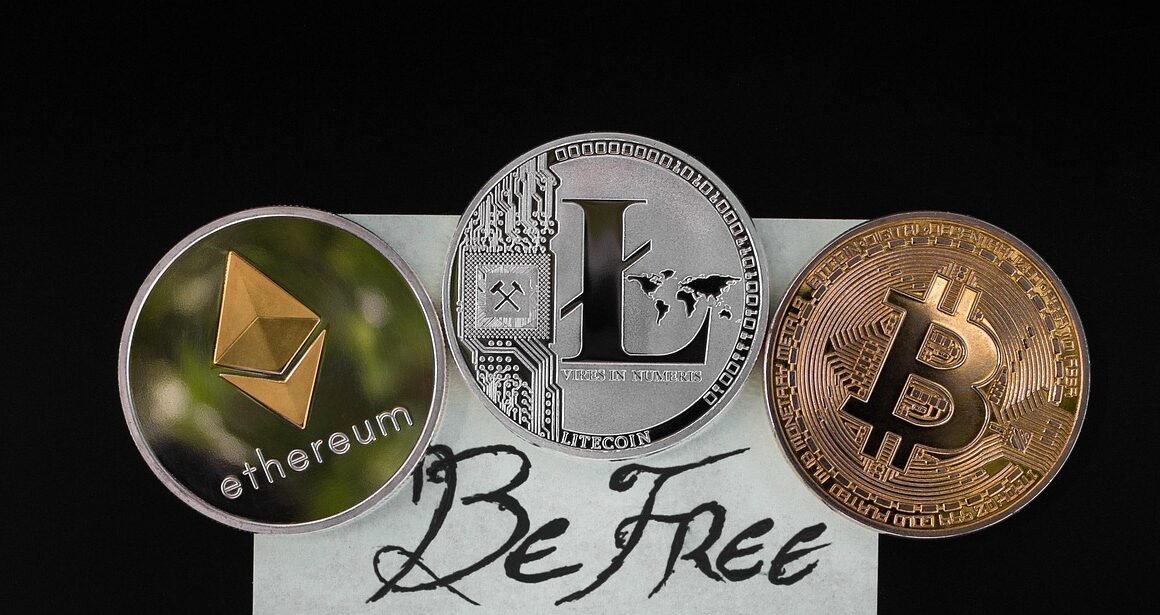The world of cryptocurrency is constantly evolving, and as digital assets gain mainstream adoption, the need for enhanced privacy becomes increasingly important. Privacy coins, designed to protect user anonymity, offer a compelling solution for individuals seeking to transact without revealing their financial activity. This blog post will delve into the intricacies of privacy coins, exploring their functionalities, benefits, and the technology that powers them. We’ll examine how these cryptocurrencies differ from traditional ones and what makes them a crucial aspect of the digital asset landscape.
Understanding Privacy Coins
What are Privacy Coins?
Privacy coins are cryptocurrencies that employ various techniques to obscure the details of transactions, such as the sender, receiver, and amount. Unlike Bitcoin, where transaction data is publicly viewable on the blockchain (though pseudonymous), privacy coins aim to provide a higher level of anonymity.
- Key Features:
Anonymity: Hiding the identities of transaction participants.
Untraceability: Making it difficult to link transactions to specific users.
Confidentiality: Shielding the transaction amount.
How Privacy Coins Differ from Traditional Cryptocurrencies
The primary difference lies in the level of privacy provided. While Bitcoin offers pseudonymity, transactions can often be traced back to individuals through sophisticated analysis. Privacy coins, on the other hand, utilize cryptographic techniques to break these links.
- Bitcoin: Transactions are recorded on a public ledger, making them traceable.
- Privacy Coins: Employ technologies to obfuscate transaction details, offering a higher degree of anonymity.
Examples of Privacy Coins
Several privacy coins exist, each employing different technologies to achieve anonymity. Here are some notable examples:
- Monero (XMR): Utilizes Ring Signatures, Stealth Addresses, and Ring Confidential Transactions (RingCT) to conceal the sender, receiver, and amount, respectively. This is generally considered one of the most robust privacy coins.
Ring Signatures: Allows a user to sign a transaction on behalf of a group, making it impossible to determine the actual signer.
Stealth Addresses: Creates a unique, one-time address for each transaction, preventing others from linking transactions to a specific user.
RingCT: Hides the transaction amount.
- Zcash (ZEC): Employs zk-SNARKs (Zero-Knowledge Succinct Non-Interactive Argument of Knowledge), a form of zero-knowledge cryptography, to allow transactions to be verified without revealing the sender, receiver, or amount. Zcash transactions can be either “transparent” (like Bitcoin transactions) or “shielded” (using zk-SNARKs for privacy).
zk-SNARKs: Allows proving the validity of information without revealing the information itself.
- Dash (DASH): Incorporates a feature called PrivateSend, which mixes coins from multiple users to obfuscate the transaction history. Dash also offers InstantSend for faster transaction confirmation. While PrivateSend provides a degree of privacy, it’s often considered less robust than the privacy features of Monero or Zcash.
- PIVX (PIVX): Focuses on privacy and decentralization. It uses a variation of the Zerocoin protocol, combined with the Proof-of-Stake consensus mechanism.
The Technology Behind Privacy
Ring Signatures
As exemplified by Monero, ring signatures allow a user to sign a transaction on behalf of a group. This makes it computationally infeasible to determine the actual signer among the group members.
- How it Works:
The actual signer’s key is combined with the public keys of other users.
The transaction is signed using this composite key.
From an outside perspective, any member of the ring could have signed the transaction.
Stealth Addresses
Stealth addresses, also used by Monero, create a unique, one-time address for each transaction. This prevents others from linking transactions to a specific user’s public address.
- Process:
The sender generates a random, one-time key.
This key is used to create a unique stealth address for the recipient.
Only the recipient can spend the funds sent to this address.
Zero-Knowledge Proofs (zk-SNARKs)
Zcash utilizes zk-SNARKs, a powerful cryptographic tool that allows proving the validity of a transaction without revealing the transaction details.
- Key Benefit:
Transactions can be verified without revealing the sender, receiver, or amount.
- Example:
Imagine proving you know a password without actually revealing the password itself.
Coin Mixing
Dash’s PrivateSend feature and similar techniques involve mixing coins from multiple users in a pool. This makes it difficult to trace the origin and destination of the funds.
- How it Works:
Users send their coins to a central mixing service.
* The service combines the coins and distributes them back to the users in different amounts and from different addresses.
Benefits of Using Privacy Coins
Enhanced Financial Privacy
The primary benefit of privacy coins is the enhanced financial privacy they offer. Users can transact without fear of their financial activities being tracked or monitored.
- Protection from Surveillance: Prevents third parties from monitoring your transactions.
- Reduced Risk of Targeted Attacks: Obscures your financial holdings, reducing the risk of theft or scams.
Greater Financial Freedom
Privacy coins empower individuals to control their financial data and transact freely.
- Decentralized Control: Users have full control over their funds and transactions.
- Reduced Censorship: Transactions are less likely to be censored or blocked.
Increased Security
By obscuring transaction details, privacy coins can enhance security and protect against potential attacks.
- Reduced Information Leakage: Minimizes the risk of revealing sensitive financial information.
- Improved Security: Makes it more difficult for malicious actors to target specific individuals or accounts.
Challenges and Controversies
Regulatory Scrutiny
Privacy coins have faced regulatory scrutiny due to concerns about their potential use in illicit activities.
- Money Laundering Concerns: Regulators are concerned that privacy coins could be used to launder money or finance terrorism.
- Delisting from Exchanges: Some exchanges have delisted privacy coins to comply with regulatory requirements.
Scalability Issues
Some privacy coin technologies can be computationally intensive, leading to scalability challenges.
- Larger Transaction Sizes: Privacy-enhancing techniques can increase transaction sizes, slowing down processing times.
- Resource Intensive: Zk-SNARKs, for example, require significant computational resources to generate and verify proofs.
Complexity
The technology behind privacy coins can be complex and difficult for the average user to understand.
- Technical Barriers: Implementing and using privacy features may require technical knowledge.
- User Adoption Challenges: Complexity can hinder widespread adoption.
Conclusion
Privacy coins represent a significant advancement in the cryptocurrency space, offering users enhanced financial privacy and control. While challenges such as regulatory scrutiny and scalability issues exist, the benefits of enhanced anonymity and security make privacy coins an important part of the evolving digital asset landscape. Understanding the technology and implications of privacy coins is crucial for anyone seeking to navigate the future of digital finance. As technology continues to advance, we can expect further innovations in privacy-enhancing cryptocurrencies, ultimately shaping a more secure and decentralized financial future.


